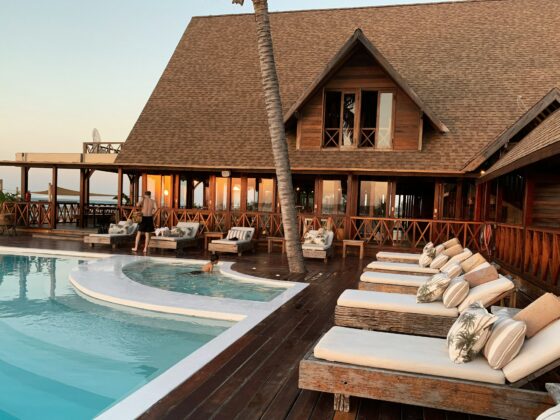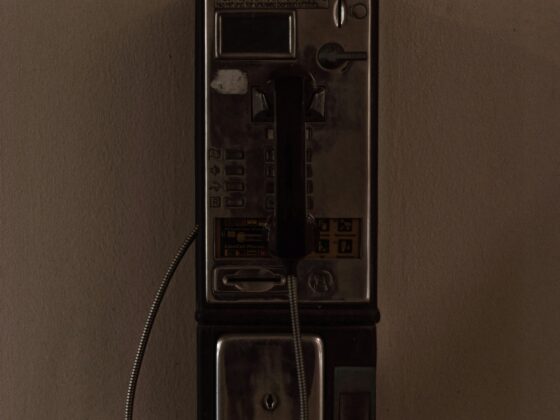
An event planner from a local company—let’s call it Golden Group—reaches out to your hotel’s sales team in urgent need of a room block and conference space for a quarterly strategy meeting, just a few days away.
Normally, they hold these meetings at their office, where an on-site café takes care of breakfast and lunch, and everything runs like clockwork. But unexpected building maintenance has thrown a wrench into their routine. The urgency in the planner’s voice is more than logistical—it’s personal. Their reputation is on the line. The conference team expects the same seamless experience they’re used to, and any hiccup could reflect poorly on the planner’s ability to deliver. They need a contract turned around within 24 hours, with full confidence that your team can execute without missing a beat. So how does your hotel win this business? By meeting the client exactly where they are—understanding their priorities, removing obstacles, and offering a seamless solution, fast.
It’s 2025, and we’re operating in a fast-paced, convenience-first world where simplicity is no longer a luxury, it’s the baseline expectation. Corporate accounts, business travelers, and event planners are juggling full calendars, tight deadlines, and time-sensitive objectives. When they turn to a hotel for meeting space, rates, dates, and availability, they’re not just looking for logistics, they’re looking for peace of mind. They want to know you’ll handle the details so they can stay focused on delivering for their teams, clients, or executives.
Simplicity signals professionalism. It tells the client that your team is aligned, experienced, and capable of delivering under pressure. And that trust, once earned, becomes your hotel’s competitive edge. Hotels that consistently remove barriers and streamline every touchpoint—from the first inquiry to the final invoice—don’t just close sales. They build relationships that lead to repeat business, referrals, and long-term brand loyalty. Before we get into how simplicity drives success, it’s worth grasping how easily the client experience can get off track through pain points.
Complexities for Business Travel and SMERF Clients
Business travelers, SMERF planners, and organizers from other key market segments are often under pressure to coordinate multiple moving parts—quickly, efficiently, and with minimal room for error. Even small friction points in the hotel experience can feel amplified under those conditions and lead to lost business. Understanding their pain points is the first step to removing them.
1. Overly Complex Booking Processes
Whether it’s unclear room rates, multiple steps to confirm a block or guestroom, or disorderly communication between departments, complicated reservation workflows create stress for clients who want a fast and reliable solution. The event planner for Golden Group doesn’t have time to jump through hoops. A clunky online RFP form, vague group pricing, or delays in receiving a proposal could cost you the business. Instead, a simple and clear proposal with bundled rates and a direct point of contact shows that your hotel understands urgency and values the client’s time.
2. Inflexible Group Terms or Contracts
Rigid cancellation policies, hard cut-off dates, or confusing clauses can make a planner feel like they’re walking a tightrope. Flexibility, especially with short-window bookings or repeat clients, can be the difference between winning or losing the business. With only a few days to go for the event planner for Golden Group, rigid cut-off dates, high attrition penalties, or non-negotiable food and beverage minimums can immediately turn off the planner. Flexibility can make all the difference in closing a piece of business.
3. Poor Communication or Unclear Event Details
When clients have to chase down answers or speak with multiple contacts to confirm room layouts, AV needs, or catering timelines, it creates anxiety—and erodes trust in your team’s ability to execute smoothly. The Golden Group event planner is already stressed. The last thing they need is to repeat themselves multiple times or chase down answers. Clear, proactive communication builds confidence.
4. Delays at Check-In or Billing Issues at Check-Out
For business travelers, these moments eat into valuable time. For groups, they can reflect poorly on the event host or planner, especially if attendees are kept waiting or billed incorrectly. Suppose the Golden Group conference team arrives to find their reservations improperly linked to the master account and are asked to provide an incidental payment method. That small lapse reflects poorly on the planner, even if it wasn’t their fault.
5. Food & Beverage Coordination Issues
A major, often overlooked pain point is when catering setup is delayed or incomplete. Imagine a corporate training session scheduled to begin at 9:00 a.m. but the breakfast delivery arrives at 9:15, disrupting the flow and forcing the organizer to adjust the agenda. These kinds of lapses not only interrupt the meeting, but also risk humiliating the planner in front of their attendees. Back at Golden Group’s office, this team is used to having meals handled like clockwork. A delayed breakfast setup or lunch interrupting a presentation would reflect poorly on your hotel—and by extension, the planner.
Simplicity vs. Convenience
Simplicity can be observed as the foundation, while convenience is the outcome.
- Simplicity is what the sales team builds into their systems (e.g., intuitive proposals and streamlined administrative tasks).
- Convenience is what the client feels (e.g., “That was easy,” “They handled everything.”).
In hospitality, simplicity is the behind-the-scenes magic that creates convenience for the client. It’s how a well-structured proposal leads to faster decision-making, or how one point of contact eliminates miscommunication. Simplicity is the strategy and convenience is the reward. Alike, the sales team sells the dream, and the operations team services it. When both sides work from the same simple, client-centered strategy, the result is a smooth, confident guest experience that feels effortless because the hard work was done long before check-in.
And for the client, that simplicity does more than just make things easier—it reduces decision fatigue, builds trust faster, eases anxiety around execution, and helps them shine in front of their team or leadership. In other words, your hotel doesn’t just meet expectations, it makes your client look and feel like the lead.
Simplicity as a Competitive Advantage
Now that we’ve seen how complexity creates friction, let’s shift focus to what actually wins the business—simplicity. In 2025, clients like Golden Group aren’t just hoping for convenience— they’re expecting it. Simplicity shows that your hotel is aligned with their pace, their pressure, and their priorities. When the booking process is intuitive, the proposals are clear, and the team communicates seamlessly, clients immediately feel at ease. Instead of chasing information or pushing back on rigid terms, they see a partner who “gets it.” One who makes their life easier.
1. The Experience is the Value
Today’s clients aren’t wowed by endless amenities or overcomplicated packages—they’re impressed by how easy you make things. A clear proposal that shows you understand their priorities, a quick contract turnaround, and a proactive point of contact goes further than flashy perks and concessions ever could. When you reduce friction, you shorten the sales cycle, build trust faster, and increase your chance of repeat business.
2. Simplicity as a Sales Strategy
Winning business in 2025 means thinking like your client. If every step from booking, planning, staying, and checking out feels easy and seamless, your hotel stands out. Simplicity becomes a competitive edge. Many sales teams are trained through brand programs that emphasize certain steps, scripts, or presentation styles. These techniques are valuable for creating consistency and maintaining standards but it’s important not to lose sight of the client in the process. As effective salespeople we must know when to adapt, personalize, and lead with empathy. Our clients aren’t thinking in terms of brand checklists, they’re thinking in terms of outcomes, ease, and trust.
The hotels that win in today’s environment are the ones that simplify, personalize, and deliver with consistency. Salespeople don’t just respond—they relate. They listen more than they pitch. They make it easy for clients to say “yes,” not just once, but again and again. When a hotel removes friction from the client journey, it does more than just make a good impression—it builds momentum across every area of business.
Simplicity leads to faster decision-making, fewer client objections, and shorter sales cycles. Convenience leads to repeat bookings, stronger word-of-mouth referrals, and higher satisfaction scores. Hotels that deliver a seamless experience stand out in a crowded market. Clients remember how easy you made it for them—and that ease becomes your competitive edge. Whether it’s an event planner rebooking their quarterly meetings or a corporate traveler choosing your property over the competition, the return on a frictionless experience is loyalty.
Operationally, simplicity also benefits internal teams. Sales teams waste less time on back-and-forth follow-ups. Operations teams are empowered to execute with clarity, and hotel management can rely on more consistent service delivery, which protects the brand’s reputation and boosts value. In short, simplifying the client experience isn’t just good service, it’s smart business. It turns one-time clients into long-term partners, boosts your hotel’s standing in the market, and builds a foundation for sustainable growth.
Reprinted from the Hotel Business Review with permission from www.HotelExecutive.com.







